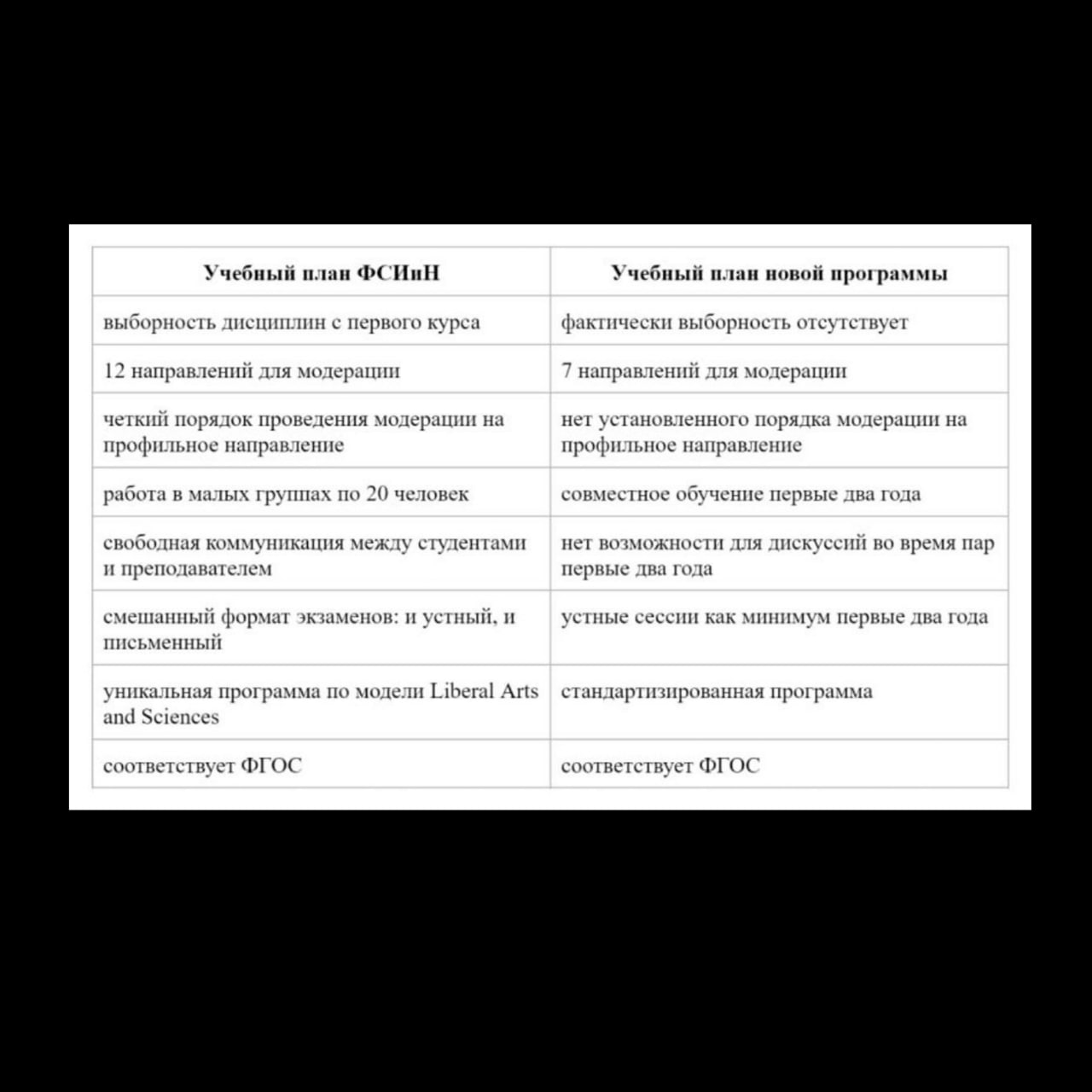Students of the Faculty of Liberal Arts and Sciences studied the new curriculum of St. Petersburg State University. They report that the Liberal arts and sciences system has been eliminated from the plan. Earlier, the scientific director of this system, Nikita Kuznetsov, reported that it was characterized by "the worst Western stereotypes." Sota drew attention to this.
As students write, the following changes will be introduced in the new academic year:
- The number of English courses will be reduced from 21 to 2;
- The election is cancelled. Future freshmen will have the opportunity to choose a profile after year 2 (cultural history, film and video in the context of culture, cognitive studies, literature in the context of culture, music in the context of culture, sociology of culture, economics of culture), and until then more than 100 people will master the same disciplines, but even after 2 years the choice of courses directly is de facto absent. The opportunity to build your own learning path is abolished.
- The reduction of educational areas by almost half: instead of 12 profiles there will be 7 trajectories, the program of international relations, political sciences and human rights, among others, is being abolished.
- The possibility of discussions during pairs is removed, previously the program provided the opportunity for free communication between students and the teacher.

In addition, students write that over the past two years, the number of teachers has greatly decreased – out of a hundred teachers since 2021, 25 people have left the university.
Not only the curriculum of St Petersburg University is changing. Earlier, The Insider wrote that the university management decided to change the symbol – instead of the "Winged Genius" it will be a monument to Count Sergei Uvarov, the Minister of Public Education during the reign of Nicholas I. Sergey Uvarov is the author of the theory of official nationality, the state ideology of the Russian Empire during the reign of Nicholas I. It is based on conservative views on education, science, literature, and the motto was the expression "Orthodoxy, Autocracy, Nationality" as an antithesis to the motto of the Great French Revolution "Liberty, equality, fraternity."


